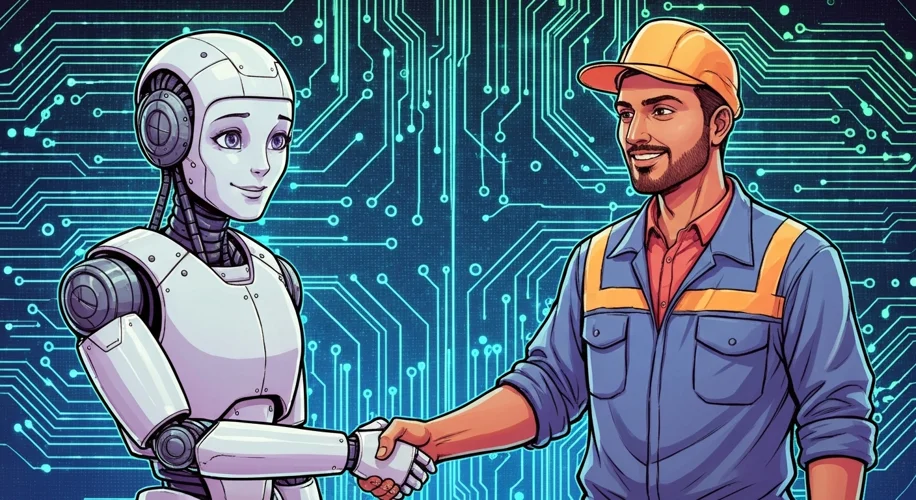Okay, so hear me out. We all know AI is advancing at lightning speed, right? But sometimes, the story of how it gets there is pretty wild. Take Google’s Gemini AI, for example. Some of the folks who helped train it? Well, their jobs are now done by the very AI they trained. Talk about a feedback loop that really, uh, loops.
It’s a bit of a mind-bender, isn’t it? You have people meticulously labeling data, refining responses, and essentially teaching an AI to be smarter. And then, poof, the AI gets so good it doesn’t need them anymore. This isn’t science fiction; this is happening now, and it’s shaking things up for a lot of careers.
This whole situation brings up some big questions for all of us, especially those of us who are trying to stay ahead of the tech curve. If the people building AI can get replaced by it, what does that mean for the rest of us?
First off, we gotta be real: AI isn’t just a tool anymore; it’s becoming a colleague, and sometimes, a competitor. The key here isn’t to panic, but to adapt. Think about it like this: If you’re learning a new skill, but you know there’s a faster, more efficient way to do it with AI, maybe you don’t fight it. Maybe you learn to work with it.
So, what can we do?
- Become an AI Whisperer: Instead of just doing the tasks AI can automate, focus on the skills AI can’t easily replicate. That means critical thinking, creativity, emotional intelligence, and complex problem-solving. Learn to prompt engineer, to guide the AI, and to interpret its outputs. Be the person who makes the AI better, not just the person who does the job the AI could do.
-
Embrace Lifelong Learning: This is probably the oldest advice in the book, but it’s never been more true. The tech landscape changes by the minute. Whatever you learned yesterday might be outdated tomorrow. Stay curious, keep learning new skills, especially those related to AI and emerging tech. Online courses, workshops, even just reading articles like this – it all adds up.
-
Focus on Human-Centric Roles: Think about jobs that inherently require human interaction, empathy, and nuanced understanding. Things like therapy, complex project management, strategic decision-making, and anything that involves deep human connection are likely to be more resilient. Or, find ways to integrate AI into these roles to augment your capabilities.
-
Build Your Own AI-Assisted Projects: Instead of waiting to be replaced, think about how you can use AI to build something new. Whether it’s a cool app, a unique piece of art, or a more efficient workflow, using AI to create demonstrates your value in this new era.
It’s a weird time, for sure. The same technology that created jobs for some is now taking them away. But honestly, I’m not gonna lie, it’s also incredibly exciting. We’re seeing unprecedented advancements, and if we play our cards right, we can ride this wave instead of being swept away by it. The goal is to evolve alongside AI, not to be left behind.
What are your thoughts on this? Have you seen this happen in your own field? Let me know in the comments!

